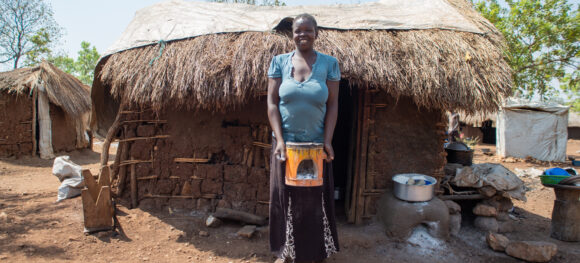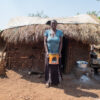Unpaid Care Work: The Invisible Wheel that keeps the World Running

In a patriarchal society, it is generally accepted and enforced that cooking, cleaning, taking care of children and elderly, and other chores known as “housework”, are duties delegated to women. These tasks which benefit other people and their well being, are what we refer to as care work. Unpaid denotes that the person performing the activity does not earn a wage, and that the work is not taken into account in the country’s Gross Domestic Product (GDP) statistics.
Care refers to actions that benefit people and their well-being; it encompasses both personal care and care-related activities including cooking, cleaning, laundry, making beds, shopping, hospital visits, etc. Work is defined as an activity that requires time and effort. Unpaid care work can also be simplified as the work that goes into making sure people can go to work, due to its largely social supportive nature and the fact that it takes place mostly at home.
Many of the things we consume require more work to be done on them, that is, goods and services are not bought from the market ready for immediate consumption. For example, food must be cooked if one is to maximize its utility. When an individual is sick, women will most likely attend to them. If nobody cooked the food or looked after a person when they were ill, how would they be able to recover and return to work? This shows the significant inputs of work (paid and/or unpaid) required to manage the non profitable, domestic or private sphere, so that people can go to work in the public sphere.
Rigid economics, overlapping inequalities
In the conventional concept of economics, these nuances are not catered for, leaving the care workers overexploited and uncompensated. To address this, a gendered, feminist approach to economics is required.Unpaid care work and the care crisis it creates must be addressed with the full understanding of the ways in which different systems intersect to further reinforce existing inequalities.
We must for example draw the connections between patriarchy, neoliberal capitalism, racism, classism, homophobia, etc, and how they manifest through unequal distribution of unpaid care and domestic work. Neoliberalism, for instance, tends to overlook the structural challenges, rather than addressing the root causes of poverty. For example, the gendered distribution of labour as a factor of production has kept women to the private sphere, where the contribution they make to economic productivity goes unrecognised.
The realities of attending to unpaid care work cost women and girls valuable time currencies that would otherwise be invested in acquiring an education or participating in the formal economy.
In Uganda, women and girls in rural areas walk an average of eight to ten kilometres in search of cooking fuel to prepare meals at home, while their male counterparts are in school. Women also remain deprived of essential social services such as healthcare, clean water, safe cities, etc. Yet they are kept bound in the drudgery of heavy and repetitive work, which can have serious physical and mental health consequences.
The COVID-19 crisis highlighted the inequalities associated with care work as experienced by different communities and individuals across the world. Women experienced a significant increase in their care burden. At the same time, the pandemic has created long-term gaps in terms of girls’ education as well as women’s participation in formal paid labor, which in turn risks reproducing traditional patriarchal gender norms and the division of labor within the household and the economy.
Human wellbeing vs. Production and consumption
In adjusting to the pandemic, we’re also forced to acknowledge the foundational role of care work, both paid and unpaid, to functioning societies and economies. Health and social care workers continued to provide care to people suffering from COVID-19, despite the risks involved. And yet, women, who are over-represented in the health sector, still face an issue of gender pay gap with female health workers often paid less than men. This is as a result of gender norms which affect women’s representation across different occupations within the health sector, with men working as doctors, dentists and pharmacists while women tend to work in nursing and midwifery roles.
The widespread response to the pandemic showed that the vast majority of people believe that human well-being, not economic growth, should be at the forefront of policy making. Focusing on “production” instead of the sustainable reproduction of human life devalues care work and those who perform it. Therefore, recognising care work as an integral part of the economic system that promotes human well-being for all is important.
As policy makers consider the long-term implications of COVID-19 on work, women’s labor should be central to research and policy, particularly drawing on the voices of women themselves.
Efforts must be hinged on an intersectional frame of analysis that analyses the intersections with ethnicity, race, class, age, and migrant status.
Care work is not work that will ever go away. It is foundational to our capacity as a society to function. From cradle to the grave we all need care.
To offset the burden of women’s unpaid care work, it must first be recognised, reduced and re-distributed equitably. As we work towards building a feminist future, it is imperative for us to rethink the ways in which we live. The current economic system, which centres profit over people, is unsustainable. Any solution therefore that does not look at dismantling capitalism and the current economic system is just a dead end.
We need to work instead towards a care economy which contributes to the nurturing and reproduction of current and future populations. A feminist economy approach seeks to rectify inequities in division of labor at the household level and increase the value assigned to unpaid work through equitable policies so that care work ceases to be unpaid, and exploitative.











